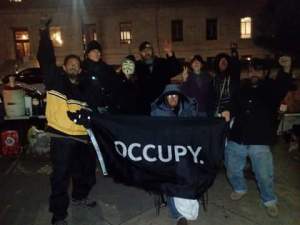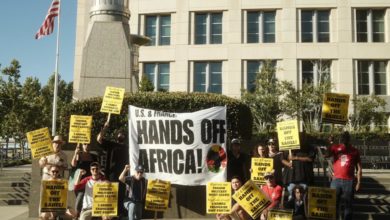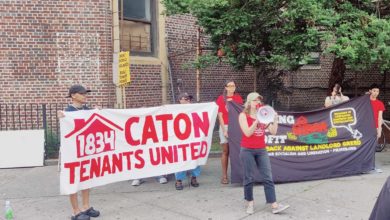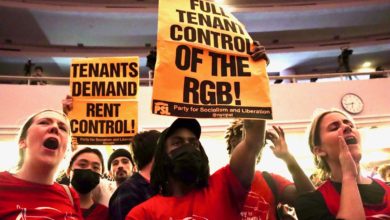 In California’s state capitol, Sacramento, homelessness is a serious problem. Unfortunately for the people who are suffering from a lack of shelter, the city government is adopting more restrictive measures designed to harass and criminalize the homeless population. Despite these measures and police intimidation and arrests, homeless activists and their supporters are still agitating for more humane treatment by the city.
In California’s state capitol, Sacramento, homelessness is a serious problem. Unfortunately for the people who are suffering from a lack of shelter, the city government is adopting more restrictive measures designed to harass and criminalize the homeless population. Despite these measures and police intimidation and arrests, homeless activists and their supporters are still agitating for more humane treatment by the city.
Currently, activists are focused on fighting an “anti-camping” ordinance that prohibits using “camp paraphernalia” on any public property. That includes everything from tents and portable stoves to things as simple as a blanket. Although the ordinance does not ban sleeping in public outright, it cruelly forces the homeless to expose themselves to winter weather without any barrier against the cold.
Since early December, homeless activists have been camping outside of Sacramento City Hall to protest the measure. Although the camp was dispersed by police equipped with riot gear on January 2, activists have returned since, facing arrests and citations as they protest the “anti-camping” policy.
The ordinance is similar to one adopted in 1987, but ruled unconstitutional shortly after. In February 2015, California’s 3rd District Court of Appeal dismissed a lawsuit claiming that the current ordinance was unconstitutional as well. Unlike the previous incarnations of the ordinance, there are currently no exceptions made for public camping when shelters are full – which is much of the time. People who have no choice but to sleep outdoors are then subject to criminalization. Illustrating this is the fact that, according to the organization WRAP (Western Regional Advocacy Project), 97 percent of homeless residents of Sacramento have been harassed by police, with 63 percent reporting arrest.
Although the city and police forces claim that their policies are designed to safeguard public health, it is clear that protecting property values is their primary concern. Even private property – supposedly sacred in capitalist society – is ignored, as when the city prevents private landowners from offering their own space for homeless camping grounds.
Public health would only be truly served by making housing a right, and not a commodity to be traded and speculated on for private profit. The callous
inefficiency of capitalism is shown clearly by the massive number of homes ready for residents – more than enough to house the homeless population – that stand empty because they cannot be profitably sold.
Providing shelter for all is not a utopian pipe dream. Like all other gains made by working and oppressed people, it can be grasped through organizing and agitating everyone who stands to gain from it – that is, everyone aside from landlords and housing speculators.






